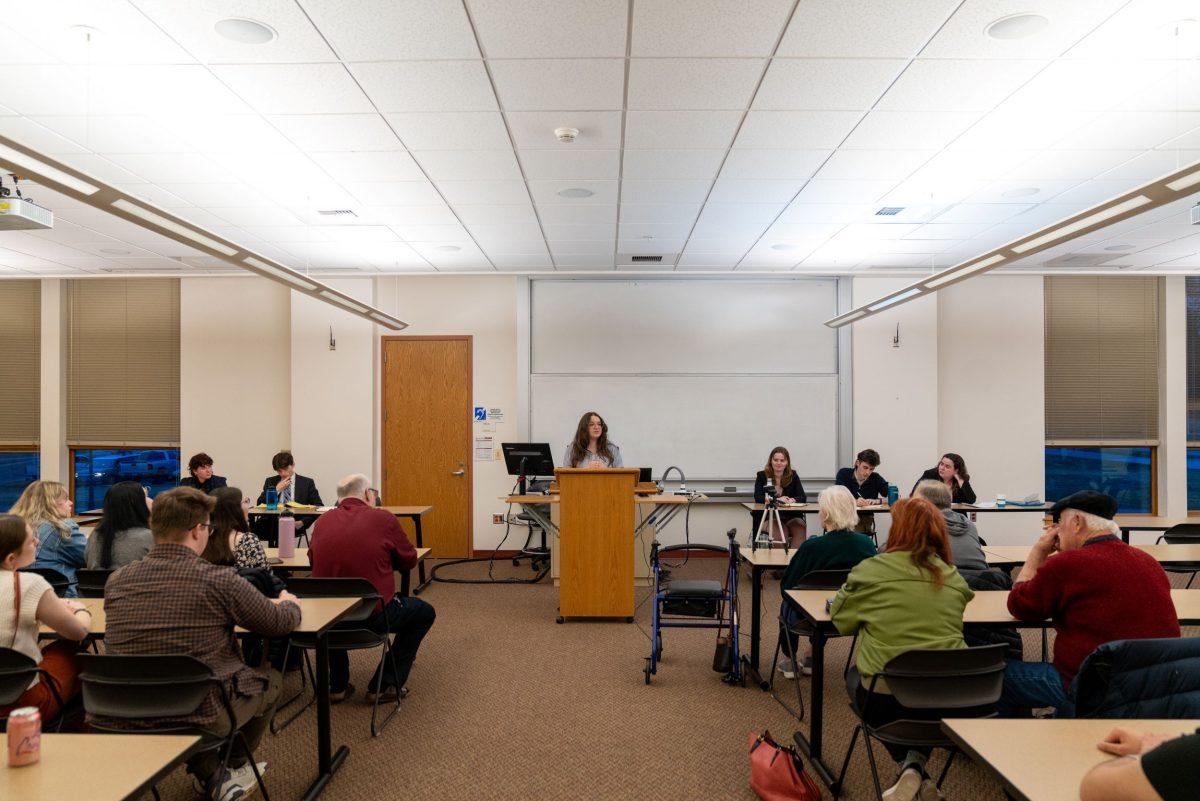
GHOSTING—verb—to end a relationship, platonic or romantic, by cutting off all contact with a partner you no longer wish to date or interact with.
Dating in the modern age plays fast and loose in regards to commitment, with apps like Bumble, Tindr and OkCupid helping to create new avenues in which people can drop relationships as quickly as they form them.
It is easier than ever before to simply stop engaging in a relationship without having to see the person face to face. For those who struggle with initiating conflict, ghosting is an easy method to end a relationship they feel no longer benefits them.
There is no stress in having to schedule the dreaded “break-up” scene with the soon-to-be ex and there is little risk of having to bear witness to the aftermath of confrontation.
Ghosting is more popular among college-aged people than any other age group. Eighteen percent of 18-29 year olds admitted to “ghosting” someone they were dating compared to 12 percent of older populations, according to a survey conducted by YouGov and Huffington Post.
Despite its apparent prevalence among college-age students, some Whitworth students appeared shocked and even disgusted by the notion of ghosting.
Ghosting is a result of conflict avoidance in an age where social media lets one avoid the shame and embarrassment that comes with breaking up with someone in person, assistant psychology professor Mark Baird said.
“Any good, healthy relationship will have conflict,” Baird said. “However, if you don’t say anything, you run the risk of shying away from conflict and letting the resentment towards your partner build, and that’s not good.”
The effects of ghosting can vary from person to person, but overall there is a negative outcome for both parties involved, more so for the one being “ghosted” than the “ghoster,” according to a Psychology Today article.
“Any mutual respect is destroyed,” sophomore Jonathan Hammerstrom said. “It just makes [the other person] feel hurt, confused and kind of aggravated.
“It makes you doubt who you are as a person, about the confidence you have in yourself,” freshman Katie Lacayo said.
However, ghosting can also be a way to escape an abusive relationship, where one may be unable to safely confront their partner or control themselves during a break-up, according to a New York Times article.
“Context matters sometimes, your only option is to ghost when you find yourself in a toxic relationship,” freshman Dean Ouellette said.
Ghosting is not likely to happen at a small campuslike Whitworth, Baird said.
“If they’re dating a fellow Whitworthian, it’s difficult to ghost,” Baird said. “You’re probably going to see them in the next week or so and so it will, it may still happen, but there’s more consequences to it.”
It does happen, however. Students who have ghosted someone didn’t want their name in the paper because of the shame or negative stigma associated with ghosting.
Dating someone outside of the Whitworth community increases the likelihood of being ghosted or a ghoster, as one can simply disappear into the folds of campus life, Baird said.
“What are they gonna do, camp outside your dorm?” Baird said about the probability of physical retaliation occurring from ghosting someone outside the Whitworth campus.













